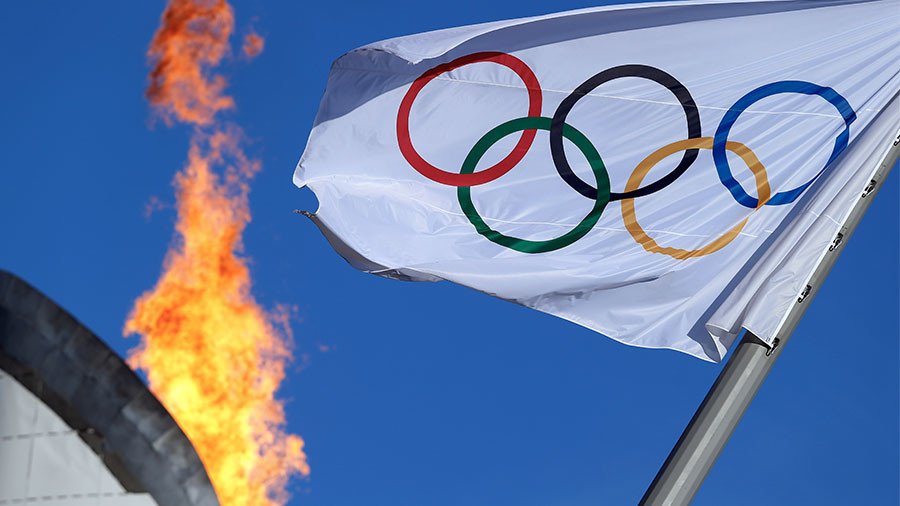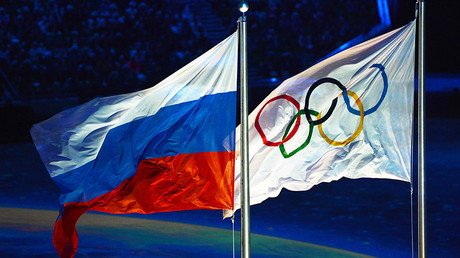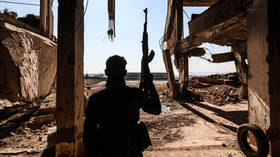‘Boycotts never work, they only damage athletes’ - WADA president on Russia’s possible Olympic snub

World Anti-Doping Agency (WADA) President Craig Reedie thinks that Russia’s possible decision to boycott the 2018 Winter Games would only “damage athletes” who could potentially compete in PyeongChang.
"Boycotts, in my view, never really work. All they do is damage athletes," Reedie told BBC Sport.
"The Olympic movement was plagued with boycotts 20, 25 years ago and it has got over that issue. I hope that people come and compete," he added.
On Thursday, WADA Foundation board ruled not to reinstate Russian Anti-Doping Agency (RUSADA) - which has been suspended since November 2015.
That verdict is expected to intensify pressure on the International Olympic Committee (IOC), which will decide on Russia’s entry into the upcoming Winter Olympics in South Korea at the Executive Board meeting scheduled for December 5.
Last week, the New York Times reported that the Russian national anthem and flag might be banned in PyeongChang as a possible punishment by the IOC for the alleged doping violations in Russian sport.
Despite the fact the IOC called that claim “premature,” speculation emerged in the media that Russian athletes will be allowed to compete in South Korea under a neutral flag, as it happened at the 2017 athletics world championships.
Several Russian sports officials, including Russian State Duma deputy and Olympic champion Svetlana Zhurova, called the possible “no flag” scenario “unacceptable,” threatening even to boycott the Olympics if that punishment is implemented.
The stumbling block in RUSADA’s reinstatement appeared to be the nonfulfillment of the two WADA criteria outlined in the roadmap to compliance – publicly acknowledging the existence of state-sponsored doping mentioned in the McLaren report and providing access to the samples stored in Moscow laboratory.
Reedie said that WADA and the Russian authorities seem to have a different understanding of what state-backed doping actually means.
“Their [Russian] definition seems to be that state sponsored means from the very top of state down to the very bottom of state," he said. "In the western world it would be different. If it comes down to a situation where we're one letter apart then I'm sure we could resolve that. There would have to be a will to do it. At the moment there are still feelings that we shouldn't," Reedie concluded.
Despite numerous calls to ban Russia from the Olympics, not all the sports figures share that point of view.
The former president of the International Bobsleigh and Tobogganing Federation, Bob Storey, stated that no athlete dreams of winning an Olympic medal in the absence of strong competitors who were simply banned from participating.
"Now many innocent athletes, who have worked a lifetime to earn Olympic status, are in limbo because of the interminable squabble over past doping transgressions," he said.
"I have never met an Olympic competitor who wants to win through technical disqualification of clean competitors. Banning clean athletes from future Games or from competing under their country's flag serves no sporting or Olympic purpose.”
Now the IOC will decide whether to impose sanctions on the Russian Olympic team with less than three months to go before the Winter Games in PyeongChang. It’s possible that the IOC will again delegate decisions regarding individual athletes participation to their respective international federations, as they did it before the 2016 Games in Rio allowing 271 competitors from Russia to take part in the biggest summer sports spectacle.













